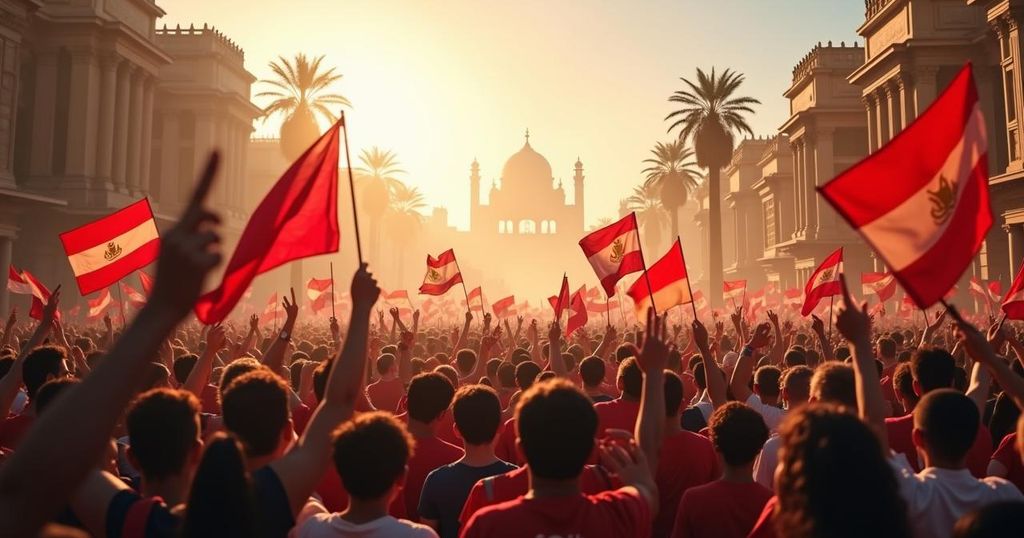The Muslim Brotherhood: Political Uprising and Subsequent Suppression in Egypt
The Muslim Brotherhood’s involvement in Egypt’s 2011 uprising against President Mubarak led to its political ascendance, eventually achieving significant electoral success through the Freedom and Justice Party. However, after Mohammed Morsi’s presidency and the military’s 2013 intervention, the group faced severe suppression, culminating in its designation as a terrorist organization and widespread arrests of its members.
In January 2011, Egypt witnessed a significant uprising led by a secular youth movement against the long-standing Mubarak regime. Initially hesitant, the Muslim Brotherhood’s senior leadership decided to support the protests and urged its members to participate actively. The resulting demonstrations compelled President Mubarak to resign in February, enabling the Brotherhood to engage openly in political processes. Though the group initially adopted a cautious approach, abstaining from seeking a majority in the legislature or nominating a presidential candidate, developments soon shifted this stance. In April 2011, the Brotherhood established the Freedom and Justice Party, which sought official recognition from the interim government. While it promised to ground its policies in Islamic teachings, it proclaimed itself a nonconfessional party with inclusive membership. Subsequently, in elections from November 2011 to January 2012, the Freedom and Justice Party emerged victoriously, claiming 47 percent of the seats in the People’s Assembly, with the ultraconservative Nūr Party following with around 30 percent. In March 2012, the Brotherhood announced it would field a presidential candidate, Khairat al-Shater; however, he was disqualified due to a previous criminal conviction. Consequently, the party’s head, Mohammed Morsi, stepped in and won the presidency. His administration soon faced significant challenges, including economic instability and public dissatisfaction, leading to mass protests demanding his resignation on June 30, 2013. The Egyptian military intervened on July 3, suspending the constitution, deposing Morsi, and initiating a crackdown on the Muslim Brotherhood. This violent suppression resulted in widespread arrests, the closure of Brotherhood-affiliated media outlets, and fatalities during protests. By September 2013, the government restored a ban on the group, which was later declared a terrorist organization. The resulting crackdown led to mass trials and harsh sentencing against Brotherhood supporters, reflecting a stark return to the repressive political environment reminiscent of the Mubarak era.
The Muslim Brotherhood has played a pivotal role in Egypt’s political landscape, particularly during the tumultuous events surrounding the Arab Spring. Initially, the organization maintained a reserved approach, focusing on social and religious activities rather than pursuing political power directly. However, with the rise of popular protests in early 2011, the Brotherhood’s involvement became crucial, reshaping its image from a marginalized group to a significant political actor capable of shaping Egypt’s governance. The group’s subsequent electoral successes in the wake of the protests illustrated the populous backing it garnered, setting the stage for further political developments and controversies that followed.
The rise and fall of the Muslim Brotherhood in Egypt during the early 21st century showcase the volatile nature of political transitions in the region. From its initial participation in the 2011 protests to achieving electoral power, the Brotherhood’s trajectory rapidly changed with the military’s intervention in 2013. The subsequent crackdown on the organization reflects broader themes of political dissent and repression, as well as the challenges faced by newly emerging democracies in unstable political environments.
Original Source: www.britannica.com




Post Comment